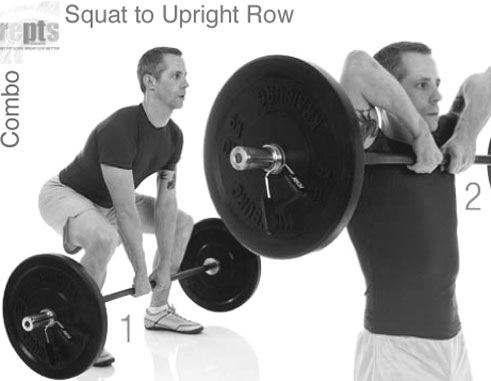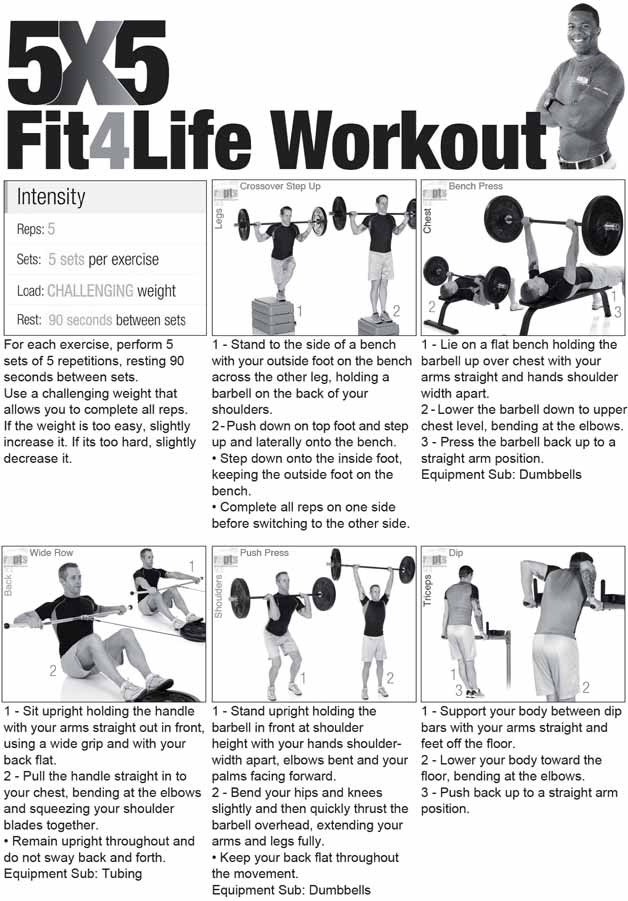This is the seventh in a series of articles intended to expose our readers to pertinent information regarding their fitness efforts. It is produced mainly on the basis of research done by Rodriguez “Rodja” Constantine, owner of REPTS (Registered Exercise Professionals & Therapists). Rodja, Personal Trainer and Fitness Consultant, is a Body Weight Specialist with over 20 years experience.
BACK TO BASICS (part 1)-Workout Principles
IT amazes me how many people still workout using the same “routine” they did one month, three months ago, or one they ripped out of a magazine years ago. They found something that worked back then and have stuck with it ever since. They perform the same exercises for the same old three sets of 10 reps and wonder why they’re not seeing results.
Exercise is not just a matter of showing up at the gym and going through the motions. Whether you’re an Olympic athlete or a total beginner, when it comes to training there are some basic principles that should be followed. These directly affect your results. So to get the best results here are the basic training principles you need to understand and adhere to:
Specificity:
Your training should be specific to the goals you are looking to achieve. For example, if you are looking to become a better soccer player, you need to train by playing soccer and incorporating soccer-specific drills and movements into your training programme. The specificity principle is widely used and followed in the sports conditioning world, but it can be applied to any general fitness programme –whether you are looking to lose weight, gain strength or increase muscle mass.
Progressive Overload:
In order to make gains, you need to stress the nervous, muscular, skeletal and other systems with a training stimulus. This stress needs to be greater than what these systems are normally accustomed to. Using the same stimulus or stress continually will cause these systems to very quickly get used to it. When, or before this happens the systems need to be pushed a little further. That is the overload. Care must be taken not to place too much stress on any system that might result in injury. The key is to do it gradually, which is the progression.
Accommodation:
If the same level or intensity of stress is being placed upon the systems over time, they will start to accommodate or get used to that level. Your response to the stress or stimulus will start to decrease as your systems accommodate and therefore your results will be negatively affected. This can happen very quickly, even within the first few times you place stress on a system.
Adaptation:
When you start to accommodate to the stress and are no longer making any gains, then you have adapted. The stress is no longer sufficient to elicit a response. Continuing to use the same stress is useless and can actually be detrimental. A good exercise programme will change just before or right as this adaptation starts to occur so as to avoid stagnation or even some degree of detraining.
Variation:
Just as with progressive overload, where you need to gradually increase or change the level of stress to make gains, you also need to change the stimulus. This refers to the actual exercises and workouts that you perform. Variation can come in the form of changing the individual exercises, changing the order of exercises or changing the whole workout programme.
Individualization:
In general, we are all pretty much made up of the same stuff – joints, bones, muscles, etc., yet people often react to exercise differently. What might work very well for one person may not work as well for someone else. Some people gain muscle mass quickly while others are hard-gainers. Some people are naturally thin with low body fat percentages while others constantly struggle with their weight. Therefore, an exercise programme must be tailored to meet individual goals and needs. This again, is very prominent in the sports conditioning world where coaches will train certain positions of the team differently than others.
Recovery:
This is often the most misunderstood principle. A large majority of people think they are gaining the most benefit while they are exercising, when actually, the results occur during the recovery period. Proper rest and recovery between workouts is essential for gains and results. The type and amount of recovery will depend on other principles like progressive overload and variation in a programme. Also as important is the rest one takes between sets or exercises during a workout. People often do not feel the need to take an adequate rest period between sets. This can compromise the quality of your workout and ultimately your results. If you feel you do not need to rest between sets, then you’re not working hard enough – it’s time to increase the stress or overload. The amount of rest, however, depends on the training goal and should, nonetheless, not be so long as to result in time wasting.
All too often people waste time working out inefficiently and not seeing the changes they expect. They are either not using the right programme for their goals (specificity), are not using the right intensity or stress level (overload) or are using the same one workout over and over (variation), which often leads to boredom, stagnation, detraining, and quitting altogether. After all, who wants to keep putting time money an effort into training without results.
If these basic training principles are employed and adhered to, the results will follow and faster than expected.
Rodriguez”Rodja” Constantine is a Certified Personal Trainer, Fitness Consultant and owner of REPTS ( Registered Exercise Professionals & Therapists), a Personal Training Studio located in the Richard Frederick Building in Castries and in Rodney Bay opposite RJ Clarke. Rodja has over 20 years fitness experience and through REPTS offers upgradeable fitness packages (Personal and small Group Training, Body Analysis, Nutrition Counselling and Planning, NutriCare, FREE Cardio only Gym Membership, Physi-Fitness, and etc.) for one affordable monthly fee. Rodja also designs long term fitness plans and short term workout routines for use at home, your current gym, or when travelling. We invite you to visit REPTS for a free consultation and a tailored programme that will best help you achieve your fitness goal. You may call at anytime at 758-722-3763 during business hours (4:30a.m. – 10:00p.m.)to schedule an FREE consultation and trial session. Subscribe to our website at reptsfitness.com or follow repts on facebook at facebook.com/repts.fitness. Call for details.






![Simón Bolívar - Liberator of the Americas [Photo credit: Venezuelan Embassy]](https://thevoiceslu.com/wp-content/uploads/2025/12/Simon-Bolivar-feat-2-380x250.jpg)



